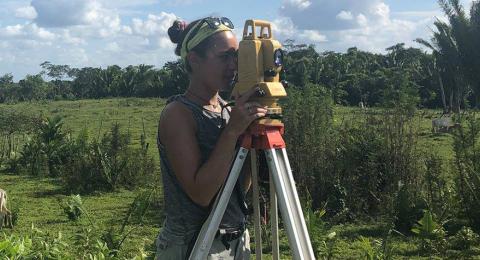What is anthropology?
What does it mean to be human? That’s the question you’ll answer while pursuing a minor in anthropology. You’ll study human beings and past and present societies throughout the world. You’ll gain a broad overview of diverse peoples and cultures and acquire critical thinking skills that can be applied to your other areas of study and the world around you, preparing you for today’s increasingly globalized world and job market.
Why study anthropology at UNH?
You can take hands-on courses in archaeology and socio-cultural, applied, medical, biological and forensic anthropology, and work with faculty on academic and applied research projects in the Americas, Europe, Africa and Central and Southeast Asia. Internships in anthropology provide supervised practical experience, and a study-away program in Belize offers hands-on archaeological experience.
Potential career areas
- Archaeology
- Business anthropology
- Community and economic development
- Education
- Forensic investigation
- Museum curation
- Public health
Curriculum & Requirements
Anthropology asks the question: What does it mean to be human? Anthropologists, as scholars, collaborators, public figures and activists, take a critical, creative and holistic approach to the study of humankind. In our relatively small program in the College of Liberal Arts, students have the opportunity to take hands-on courses in archaeology and socio-cultural, applied, medical, biological and forensic anthropology, reflecting our faculty members’ academic and applied research in the Americas, Europe, Africa, and Central and Southeast Asia.
Through coursework, fieldwork and study-abroad experiences, students gain life-long learning skills that prepare them for success in cross-cultural understanding and communication, as well as the ability to think comparatively about diversity and inequality on a local and global level.
A minor in anthropology provides many opportunities for cross-disciplinary collaboration, as students are encouraged to apply anthropological methods, perspectives and theories to the world around them, and to their other areas of study. Upon graduation, our majors and minors work for a diverse set of organizations, and are employed in a range of areas such as public health, business, law, international development, non-profit organizations, museums and education.
- A minor consists of five 4-credit courses (20 credits) in Anthropology, with a C or better in each course.
- Academic policies related to minors.
| Code | Title | Credits |
|---|---|---|
| Select one ANTH course numbered 600 or above | 4 | |
| Select four elective ANTH courses | 16 | |
| Total Credits | 20 | |




